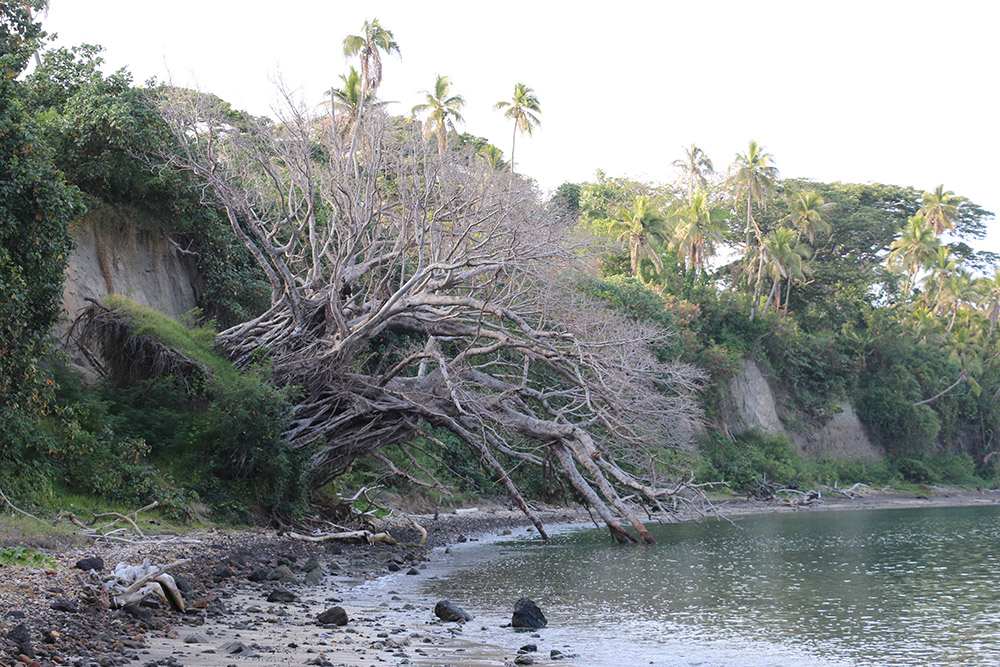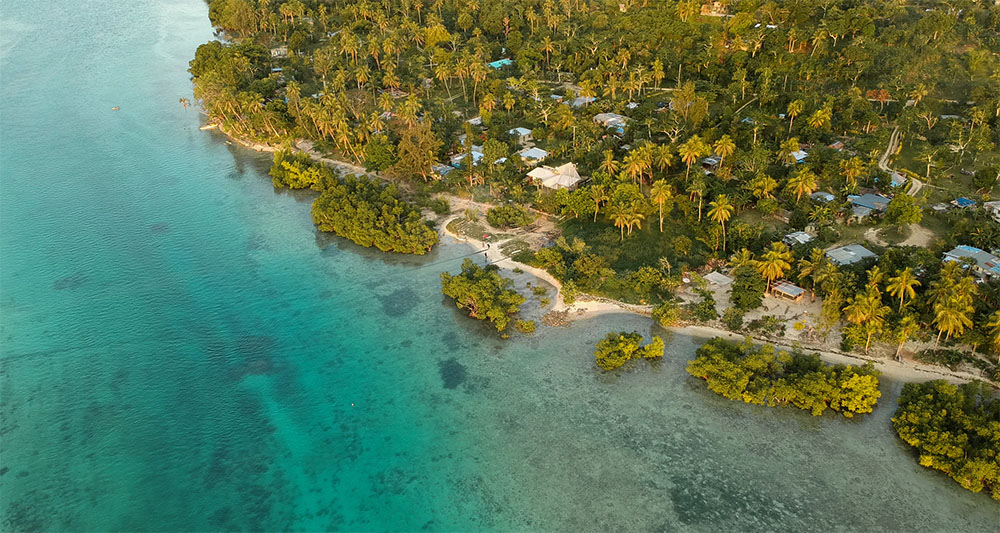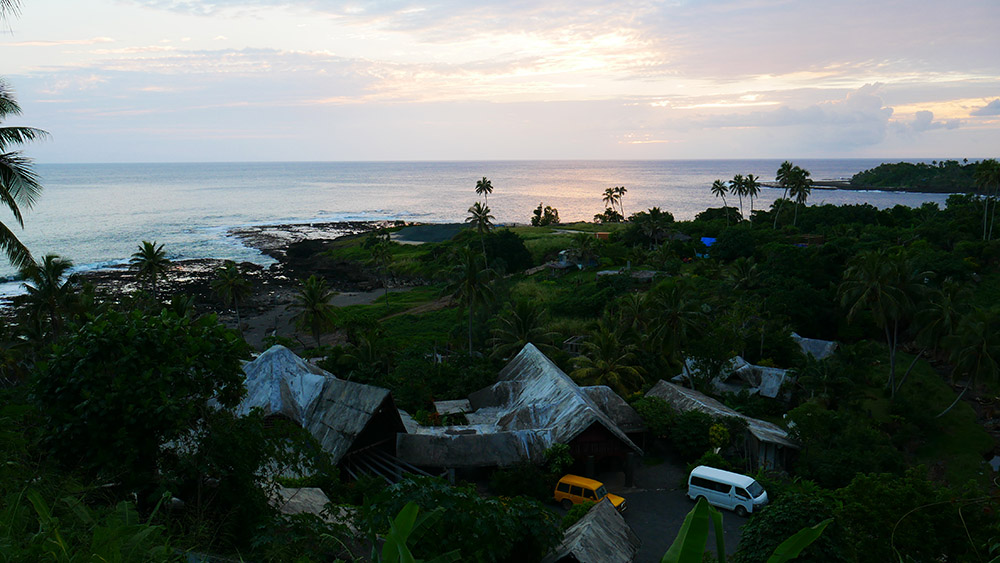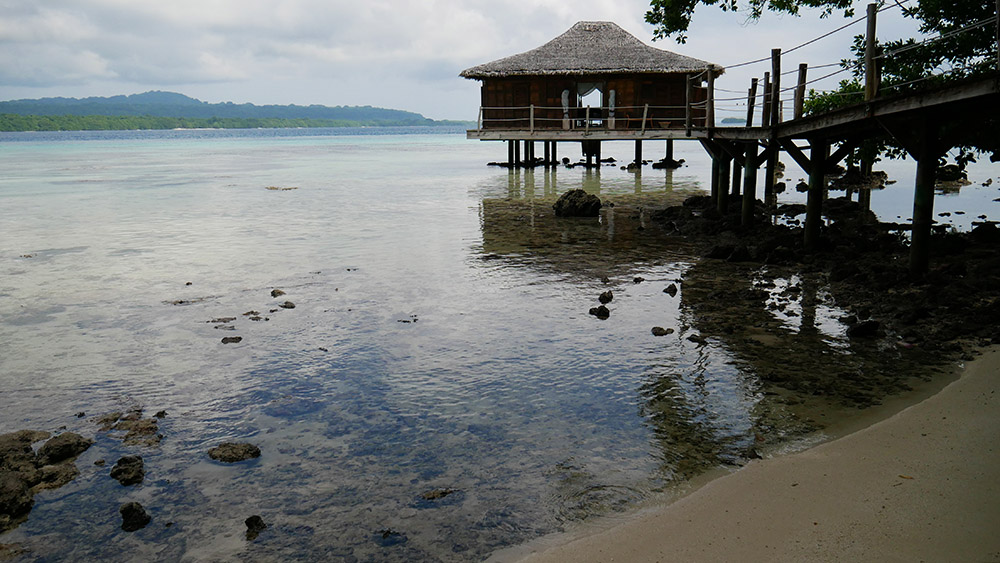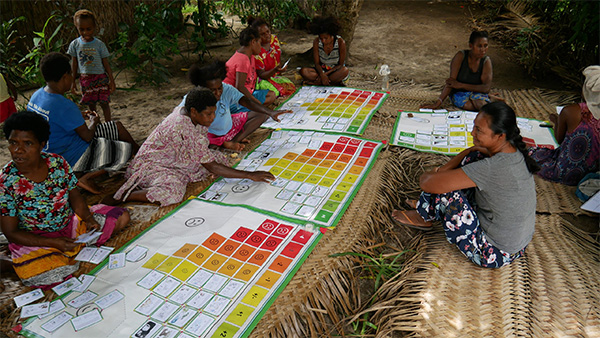
Socio-economics
Considering people, culture, and economies in adaptation
Considering socio-economics of climate change adaptation
The Pacific EcoAdapt research has sought to explore a wide range of human dimensions that can support, or limit, the success of ecosystem based adaptation (EbAEbA Ecosystem-based adaptation - an adaptation approach to climate- and environmental-change which primarily deploys ecosystems and ecosystem functions to mitigate risks from hazards.) interventions. People and economies are an important part of how adaptation to climate change occurs as well as creating a critically important context for the scope of EbA options available.
EbA is closely related to community-based adaptation as, particularly in the Pacific, the majority of communities are rural and are highly dependent upon local available resources for agriculture and food production, medicine, shelter, handicrafts for trade and livelihoods as well as for practice of traditional and cultural activities and ceremonies.
Ecosystems are also affected strongly by local community land uses, ownership arrangements as well as how policy and planning decisions work with local people about natural resource management. Community-based projects can thus strengthen those ecosystems that deliver critical services to communities and in doing so enhance community resilience.
In the Pacific EcoAdapt project, a range of stakeholder groups were involved in research activities to examine stakeholder-specific knowledge and attitudes regarding adaptation options and the decision-making processes that are in use when choosing adaptation options. These were also considered at different scales to identify constraints in multi-level governance of adaptation, ranging from community to provincial to national to regional levels across a range of different studies.
This theme aimed to answer and inform the following questions:
- Which factors have historically influenced the kinds of climate change adaptation projects and the efficacy of their outcomes in the region?
- Which factors affect local preferences for adaptation options and local valuations of adaptation outcomes from ecosystem based and engineered approaches?
- What is the extent and distribution of the benefits and costs of an adaptation project?
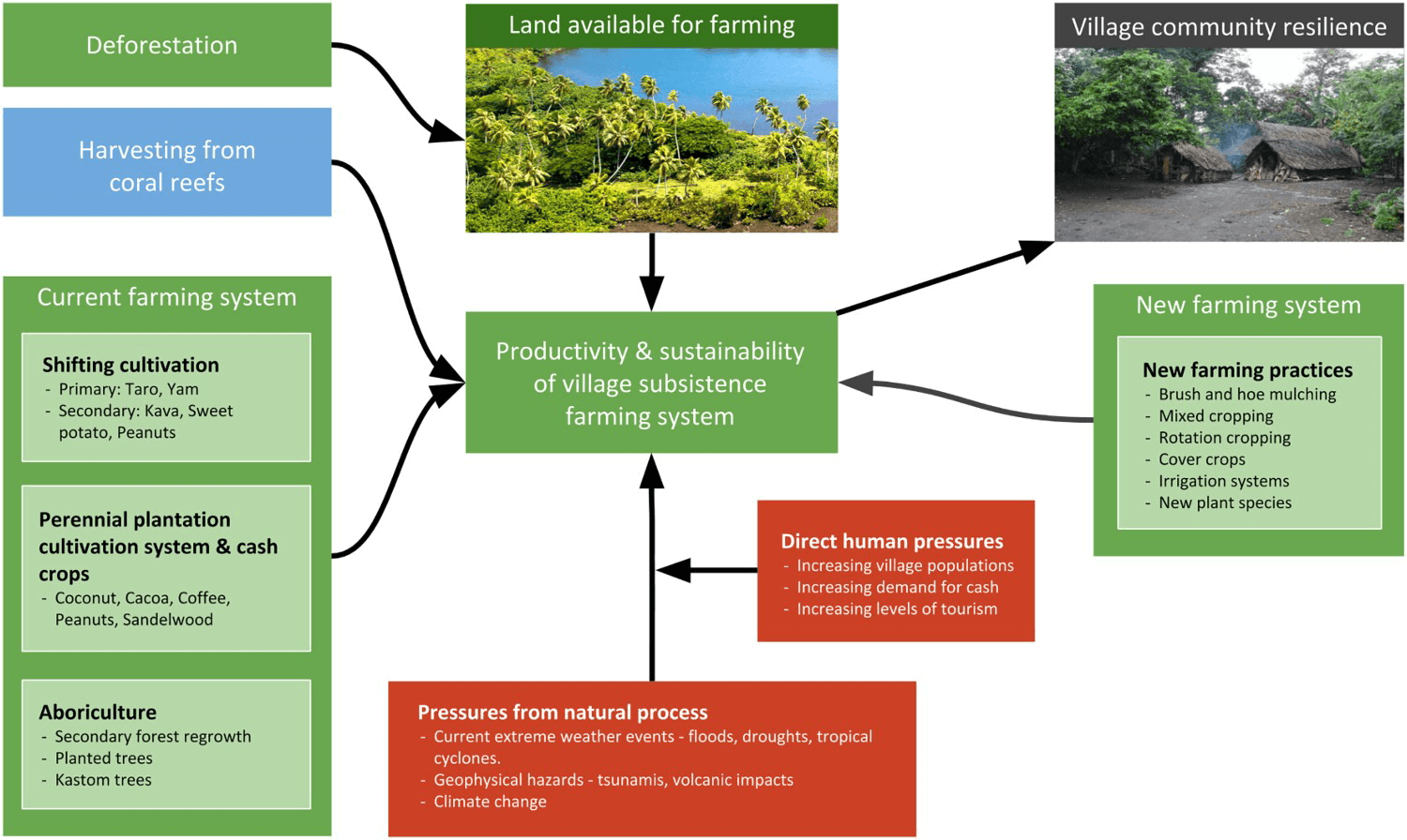
Above: A schematic representation of a complex socio-ecological system that would be similar to that of Port Resolution in Tanna. It demonstrates the links and drivers between different aspects of the food production system and the natural environment.
Key socio-economic studies
- Aspects of climate change adaptation projects (from the Global Environment Facility’s Small Grants Program) were analysed to understand what factors made it more likely to be successfully completed, and, perhaps more importantly, which aspects of a potential project generate a risk that needs mitigating.
- Another major study conducted an ecosystem assessment and economic valuation of ecosystem services at the Pacific scale as well as a more detailed assessment of the ecosystems of Tanna Island, using new spatial data from the research.
- Combining the economic valuation study (above) with community and stakeholder consultation, a social cost benefit analysis (CBA) was conducted on a series of proposed EbA options for the island of Tanna. A social CBA takes a whole-of-society view of the costs and benefits (often monetised social and environmental costs and benefits) of proposed projects.
- The small village of Port Resolution in the south-east of Tanna Island was also the focus of an intensive participatory process to identify collective community and stakeholder views towards natural resource management in times of social, economic and environmental change. It found three main viewpoints around natural resource management - demonstrating the importance of kastomkastom Kastom is a pidgin word (Bislama/English) used to refer to traditional culture, including religion, economics, art and magic in Melanesia. The word derives from the Australian English pronunciation of 'custom'. Kastom is mostly not written, only passed down through teachings and stories and includes places, stories, objects and animals and plants., but also the importance of the contribution of economic opportunities to improved well-being.
- Further analysis to consider gender differences, i.e. whether differing views were held between males and females in that community identified that significant differences exist. This work is undergoing review.
Socio-economic Recommendations to support embedding EbA in practice
- When considering hosting externally-funded complex climate change adaptation projects in Vanuatu, the government should commit to co-financing, either in-kind or in cash. In-kind support can be provided by offering time and effort of government departments. The government, the non-government sector and grant giving organisations should collaborate and assess project design to ensure that risk of implementation failure is reduced at all stages of the project.
- Commit resources (national government in conjunction with international partners) to building staff skills and capacity in integrating natural capital accounting into national accounts and well-being measures, building on the UN System of Environmental Economic Accounting (SEEA) for a Melanesian context. Engagement with SEEA will offer opportunities for Vanuatu to be supported to in participate in funded SEEA implementation projects, such as NCAVES.
- Using the tools and frameworks of SEEA and natural capital accounting the Vanuatu government should develop a series of key ecosystem accounts, both for spatial scales (such as an island) and for important sectors, such as eco-tourism. Sustainable development and the achievement of the SDGs will require economic development to be consistent with conservation of natural capital and the flows of ecosystem servicesecosystem services Ecosystem services are the goods and services provided by nature which are experienced as or transformed into benefits for human society. They are generally classed as 'provisioning' (material things that are consumed), 'regulating' (non-material benefits derived from habitat functioning), and 'cultural' (non-material benefits obtained from an experience of nature, including tourism). it provides. Such accounts can inform where, for example, the eco-tourism sector’s impacts and dependencies are, so that it can be developed equitably and sustainably. The post-Covid-19 recovery will provide an opportunity for a reassessment of tourism development patterns, using natural capital accounting tools.
Publications and resources related to socio-economic impacts
Effective coastal adaptation needs accurate hazard assessment
Community attitudes towards ecosystem based approaches to climate change
Estimating nature’s value to Pacific islands
Ecosystem and resilience assessment
How ecosystem-based adaptations to climate change influence community wellbeing
Adaptation in the Tourism Sector
Tourism is the second largest economy in Vanuatu after agriculture and is of interest in Pacific SIDS broadly due to its economic contribution to countries and as a pathway to increasing incomes.
The Pacific EcoAdapt project conducted a number of studies focusing on this sector and how climate change might impact it, what we need to know about the local tourism sector and its vulnerability to climate change and how tourism development can be guided towards EbA principles.
A number of studies explored the drivers of change impacting Vanuatu's tourism destinations and the contexts within which they operate. Context has a significant influence on resilience, how a destination responds to change, and sustainability, thus, making context specific approaches to tourism policy development and planning paramount.
Vanuatu, as with many Pacific governments, has a goal to expand the tourism sector and spread benefits to outer islands and rural areas. This needs to be managed to ensure growth is sustainable and equitable and cost are not passed on to the most vulnerable. although policies that recognise and work with sustainability principles are in place, there are gaps in the understanding of tourism as a system.
Better understanding is needed of the formal and informal institutions, cultural values and the traditional and cash economy and how these influence the system, including its resilience. As well as how the change types influence resilience and how long-term system wide sustainability and resilience can be achieved.
What role tourism can play to enhance the resilience of the wider system.
Key studies explored the Vanuatu tourism system and identified two important trade-offs that exist.
- Foreign investment accelerates tourism development and improves standards but also reduces tourism’s ability to address poverty due to high leakages and thus impacts the sector’s ability to reduce vulnerability.
- Increased visitor numbers which increase benefits to tourism but also increase pressure on the natural environment, including through emissions, thus increasing climate risk and affecting ecosystem health which in turn negatively impacts communities relying on ecosystem services.
Policy Recommendations for EbA in the tourism sector
Many of the approaches and key leverage points identified to address these trade-offs are aligned with an EbA approach to adaptation:
- Integrating tourism and climate change policies and plans, particularly through aiming to strengthen climate risk reduction through reducing reliance on external support and resources
- Investing in education and capacity building in the tourism sector to strengthen operators’ adaptive capacity and enhance decision making on the selection of interventions
- Engage with diverse stakeholders on adaptation strategies
- Increasing Ni-Vanuatu participation in tourism to enable greater influence on tourism development at local level.
- Build capacity of policy and decision makers for systems thinking and how climate risk impacts at tourism destinations are connected in feedback on each other.
- Use innovative financing tools to support climate risk reduction activities in the tourism sector and generate e.g. a tourist tax or levy could be reinvested back into local EbA activities and risk reduction activities.
- Invest in destination specific climate change research and education to support locally relevant outcomes
- Redefining the tourism industry objectives to create wider benefits beyond small-scale economic gain
Thus tourism can contribute to or initiate EbA by providing resources, access to information and support in capacity building for EbA.
